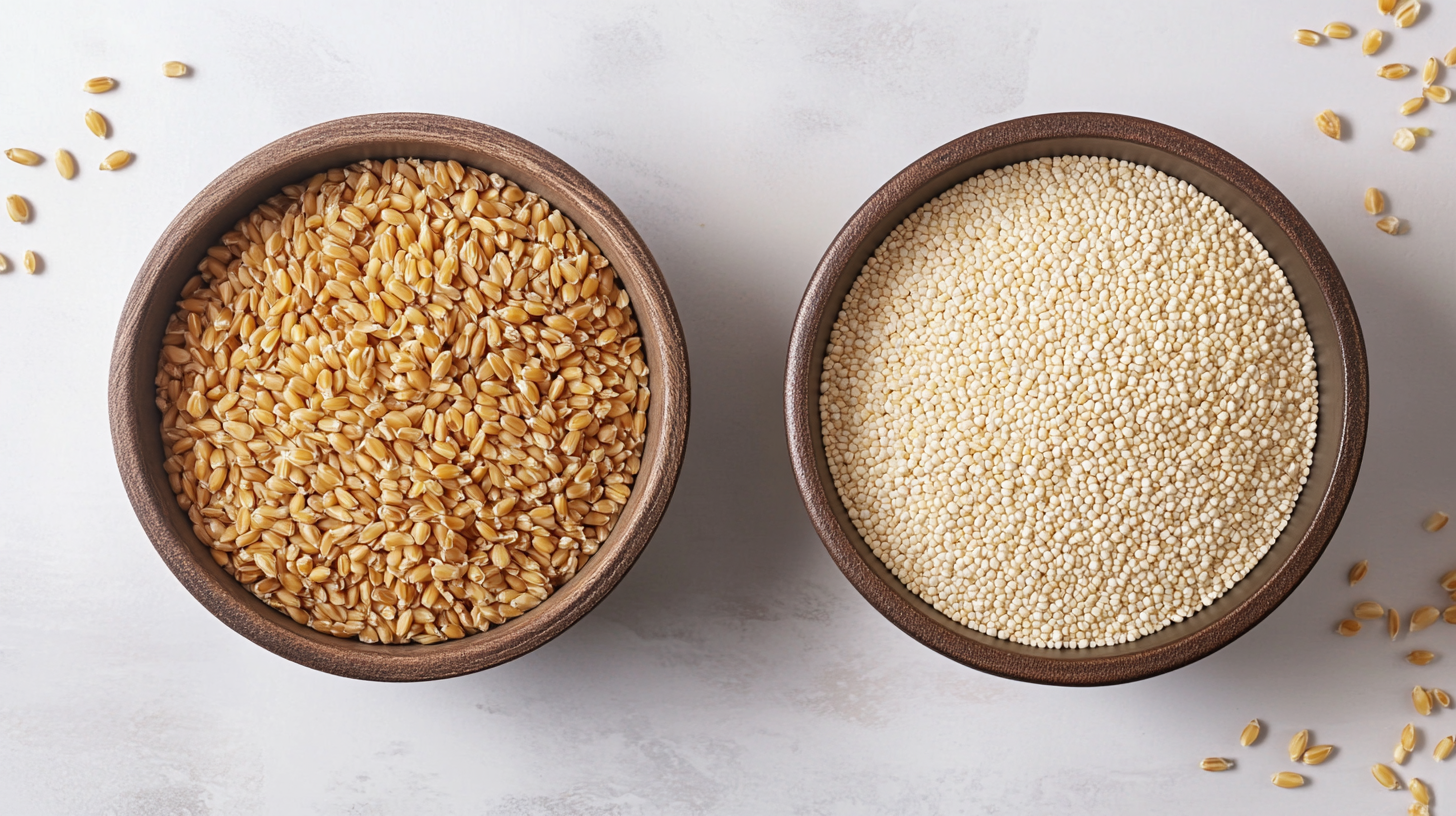When managing PCOS through diet, choosing the right grains can make a significant difference in blood sugar control and overall health. Let's compare farro and millet to help you make informed decisions for your PCOS-friendly grain bowls.
Understanding Farro and Millet
Farro is an ancient wheat grain with a nutty flavor and chewy texture. Millet, on the other hand, is a gluten-free grain that's naturally alkaline and easily digestible. Both grains can be valuable additions to a PCOS-friendly breakfast or main meal.
Nutritional Comparison
Per 100g cooked serving:
Farro:
- Calories: 340
- Protein: 13g
- Fiber: 8g
- Iron: 4mg
- Complex carbohydrates: 70g
Millet:
- Calories: 378
- Protein: 11g
- Fiber: 8.5g
- Iron: 3mg
- Complex carbohydrates: 73g
Glycemic Impact
Millet has a lower glycemic index (GI) of around 50, while farro's GI is approximately 65. For those following a low-carb approach for PCOS, millet might be the better choice.
Hormone Balance Support
Both grains contain nutrients that support hormone balance:
Farro Benefits:
- Rich in B vitamins for energy metabolism
- Contains selenium for thyroid function
- High in magnesium for insulin sensitivity
Millet Benefits:
- Contains tryptophan for serotonin production
- Rich in magnesium for hormone balance
- Provides zinc for reproductive health
Preparation and Versatility
Both grains work well in various dishes. Try them in your rice bowl alternatives or grain-based salads.
Making Your Choice
Consider your specific PCOS symptoms and dietary needs:
Choose Millet if you:
- Need gluten-free options
- Want lower glycemic impact
- Have inflammation concerns
Choose Farro if you:
- Can tolerate gluten
- Need higher protein content
- Prefer a chewy texture
Extra Tip
Soaking either grain overnight can reduce cooking time and improve nutrient absorption. For millet, toasting before cooking enhances its nutty flavor.
How This Article Was Made
Research for this article included reviewing scientific databases and nutrition data from the USDA Food Composition Database. Information was cross-referenced with peer-reviewed studies on whole grains and PCOS management from PubMed Central.
Key sources:
- USDA FoodData Central (fdc.nal.usda.gov)
- National Institutes of Health Office of Dietary Supplements (ods.od.nih.gov)
- The American Journal of Clinical Nutrition studies on whole grains and metabolic health

Community Comments
Community Comments
Add a comment